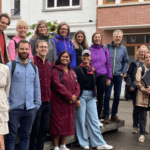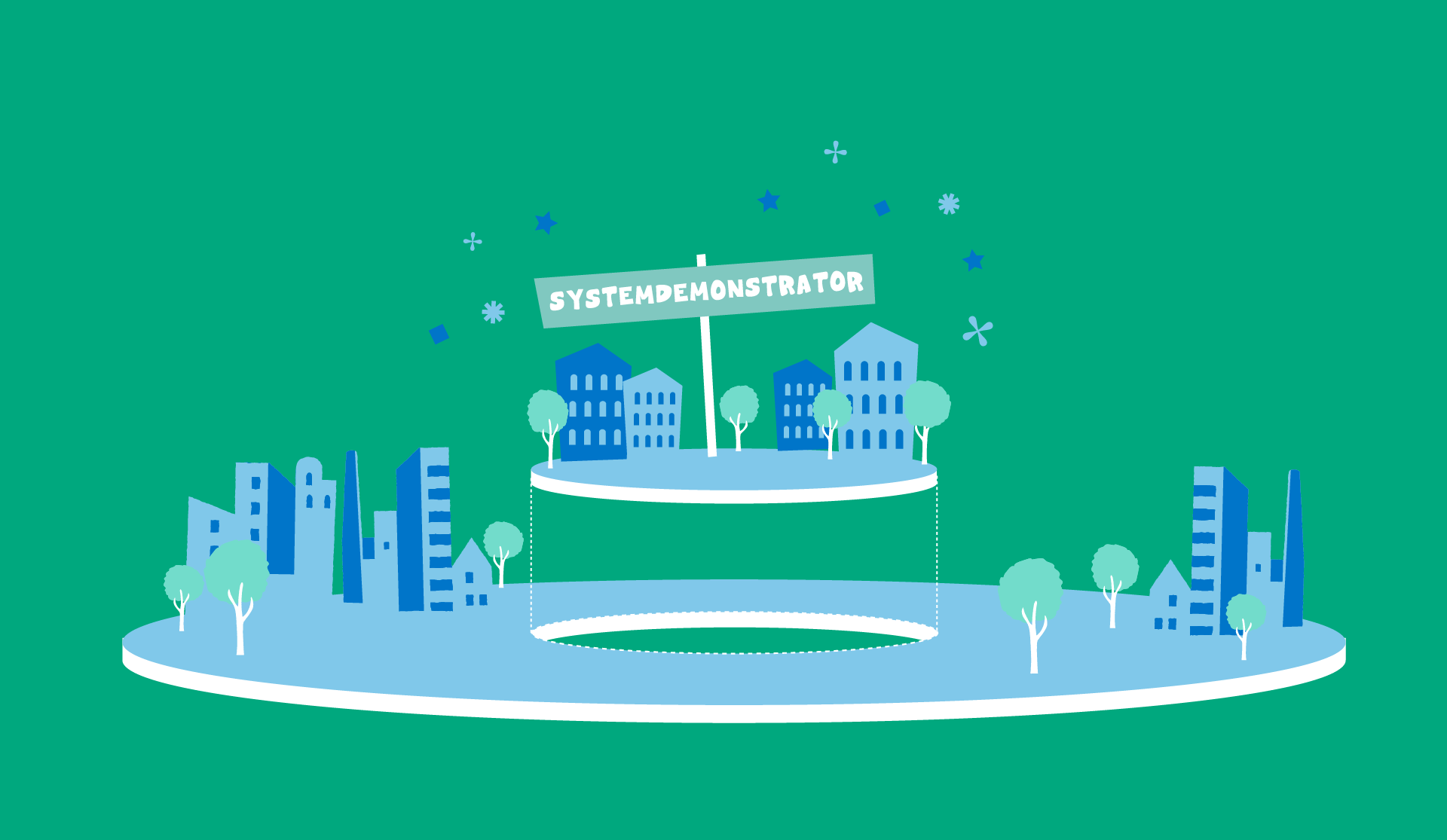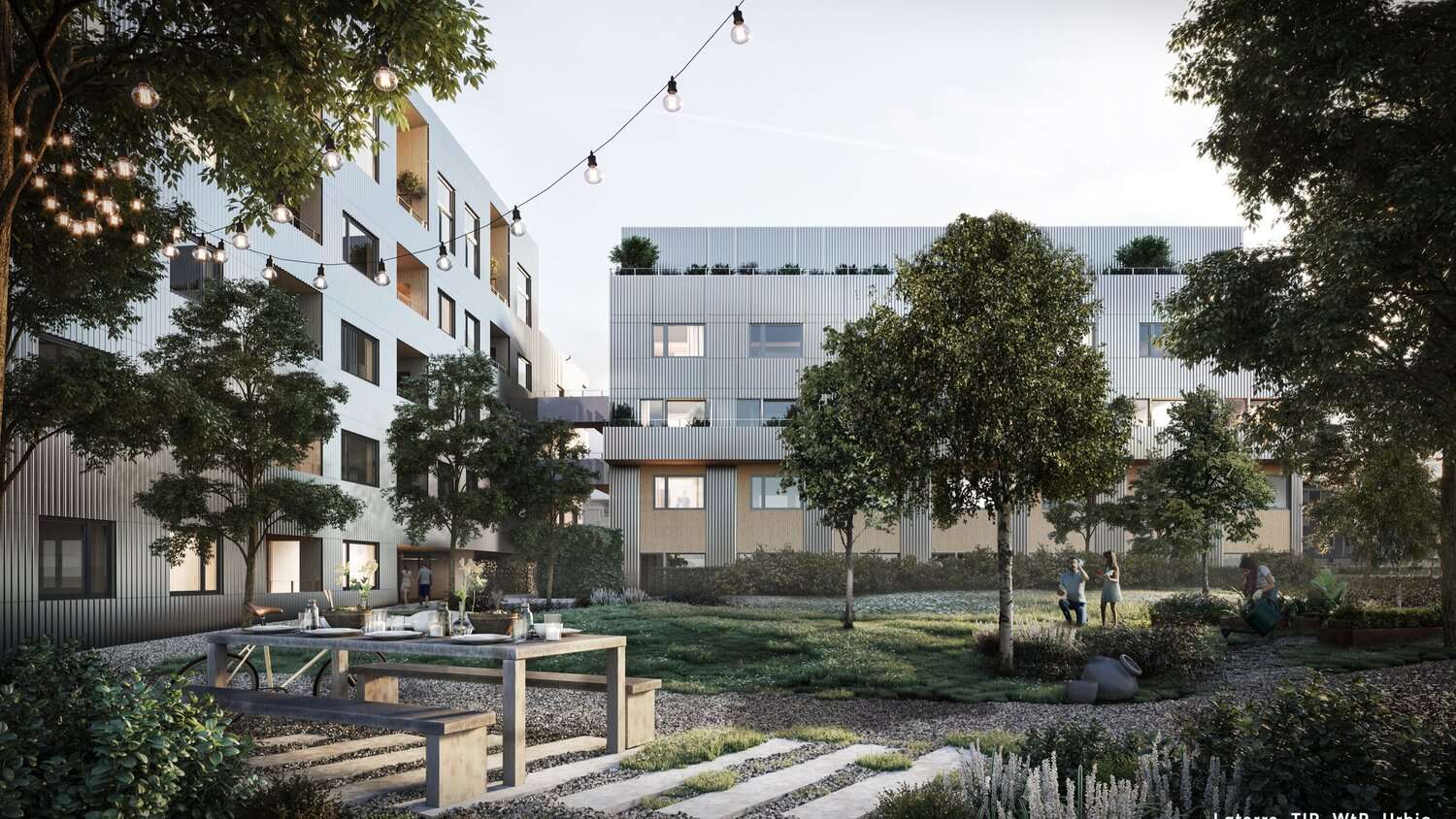Uppsala has a climate budget, climate requirements and a football pitch that can become a reservoir in the event of torrential rain.
Uppsala hooks arms with Håbo.

In Uppsala, the focus in the coming years will be on improving energy and power efficiency and increasing the share of renewable electricity, setting high climate requirements in land allocation competitions and procurements, and investing in sustainable travel. The Uppsala Climate Protocol, which has been in place since 2010, brings together companies, public organizations, universities and associations that want to make concrete progress towards a climate-converted Uppsala.
Uppsala Municipality aims to be climate neutral by 2030. Over the next few years, the focus will be on improving energy and power efficiency and increasing the proportion of renewable electricity through solar panels on the municipality's roofs. Uppsala Municipality will also reduce emissions during construction, for example through recycling and climate requirements in land allocation competitions. The municipality as a geographical area must reduce plastic in residual waste to reduce emissions from the district heating plant. This is a focus area for Uppsala Municipality's transition arena, Uppsala Climate Protocol.
Uppsala's transition arena, the Uppsala Climate Protocol, brings together companies, public organizations, universities and associations that want to make concrete progress towards a climate-transformed Uppsala. Recently, the protocol has made an organizational change and the focus groups have sharpened their action power by creating operational working groups. The network has existed since 2010 and currently consists of 45 members, but is continuously growing and every year new sources of emissions are added and followed up by the members.
Uppsala is working on preparedness issues here and now, for example to deal with torrential rain and heat waves, but it is also planning the city based on the new conditions created by climate change. For example, the new artificial grass pitch at Fålhagens IP has been lowered by half a meter to provide a flood surface in the event of torrential rain, and the municipality is planting around 500 new trees every year and developing an improved tree database to increase the number of trees in Uppsala.
In the city's latest update, they talk about the work, the transition arena, the project portfolio and much more.



Elin Stening, process manager for Climate Neutral Uppsala 2030, elin.stening@uppsala.se


Through simple technical solutions and behavioral changes, the energy peaks in the commercial kitchens in Uppsala are drastically reduced. The result is both lower overall energy demand and reduced energy costs.
Uppsala highlights additional actions that they believe may be of particular interest to other municipalities to spy and apply. Contact the process leader to spy and apply.
Football pitches can become pools during heavy rainfall. Most football pitches are arched to allow rainwater to run off them. The new artificial grass pitch at Fålhagens IP is the opposite - it is lowered half a meter to be able to be a flood surface in case of torrential rain.
The municipality plants hundreds of new trees every year. There are currently more than 28,000 trees growing in public spaces in the municipality. Uppsala municipality plants around 500 new trees every year and is developing an improved tree database to increase the number of trees in Uppsala.
Municipality shares knowledge on climate adaptation. Uppsala municipality has produced maps and reports on various risks that may arise due to climate change, to support property owners and building operators.
Climate City Contract 2030 is a collective effort to achieve the climate transition that we need to implement in a short time to keep global warming below 1.5 degrees. It is an agreement between municipalities, government agencies and Viable Cities where all parties undertake to make a concrete contribution to increasing the pace of climate change.

To achieve deep change, we need to move from fragmented projects to an ecosystem of efforts that all pull in the same direction. Cities are doing this together with Viable Cities, funders government agencies and other partners, in different constellations and with different objectives. It is about moving beyond dealing with symptoms and instead focusing on underlying problems in our social structure. Here you will find the initiatives and studies within the city that have been granted funding under Viable Cities.

The aim is to develop a roadmap for mobility hubs that will help create long-term, resilient yet flexible mobility solutions....

Climate change and the economy are currently mainly dealt with as isolated issues, and municipal economic processes do not always steer in the same direction...

City as a Platform is an innovation initiative that brings together 18 municipalities to explore, test, implement and collaborate on common IoT platforms...

The initiative will explore how urban planning can promote sustainable urban lifestyles. The focus is on knowledge of citizen participation and nudging as strategies...

The Uppsala Climate Campaign aims to accelerate the climate transition and facilitate more sustainable choices in everyday life for Uppsala residents. The initiative will engage in various ways...

Mo-Bo is a housing concept with mobility services that solve residents' transportation needs in a socially, economically and ecologically sustainable way. Sharing economy...

Since 2022, Uppsala is part of the first cohort of pilot cities from twenty-one EU and Horizon 2020 associated countries selected to launch unprecedented climate action through the NetZeroCities Pilot Cities program.